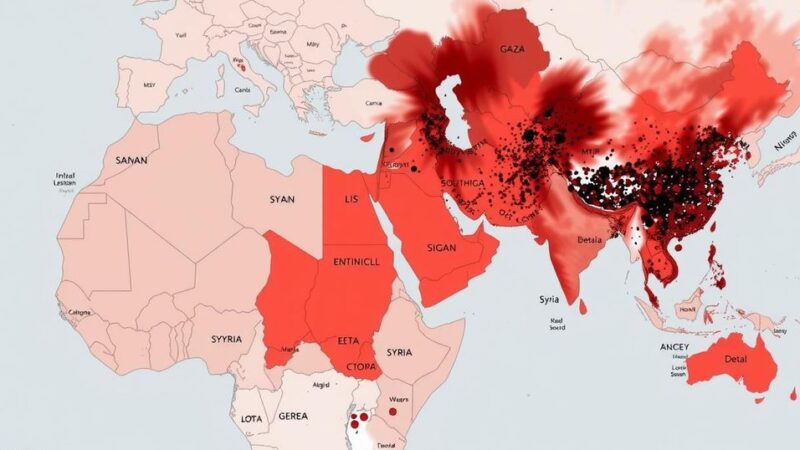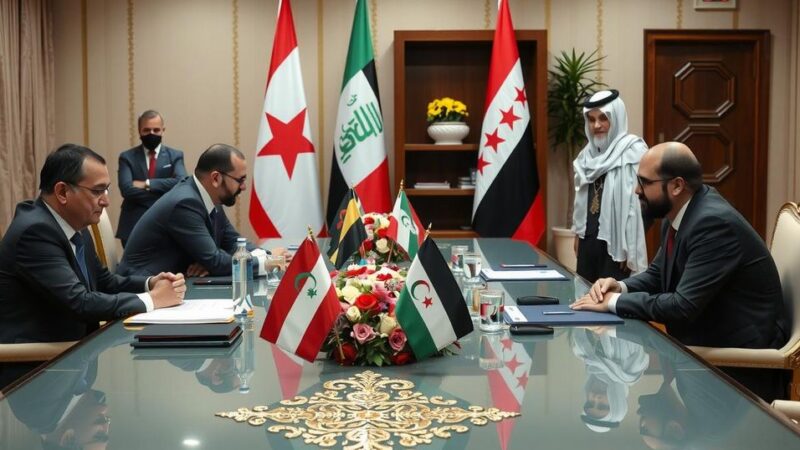Ukraine has pledged its support for Syria’s newly formed government, following the ousting of Bashar Assad. This support includes humanitarian aid to help address critical food shortages. The move reflects Ukraine’s strategic shift to counter Russian influence in the region. Meanwhile, Syria’s new leadership is confronting loyalist militias and has appointed the first female Central Bank governor, signifying efforts toward recovery amid ongoing challenges.
In a significant diplomatic move, Ukrainian Foreign Minister Andrii Sybiha visited Damascus, pledging support for Syria’s newly established government following the ousting of former President Bashar Assad, a key ally of Russia. During this visit, Sybiha met with de facto leader Ahmad al-Sharaa, discussing Ukraine’s commitment to providing humanitarian assistance, including a shipment of 500 tons of wheat flour to alleviate the food crisis in Syria, where a dire humanitarian situation persists with approximately 90% of the populace living in poverty.
The meeting underscores Ukraine’s strategic shift towards supporting nations that oppose Russian influence, further reflected in Syria’s growing ties with Western and Gulf states, which had previously opposed Assad’s regime. In response to the crucial needs for recovery and stability, Ukraine expressed readiness to share experiences in accountability for war crimes linked to the Assad regime. Meanwhile, the new Syrian authorities have launched a crackdown on loyalist militias, further complicating the already volatile security situation within the country.
In addition to ongoing humanitarian efforts, Syria appointed Maysaa Sabreen as its first female interim Central Bank governor, aiming to tackle the economic crises exacerbated by years of conflict. Concurrently, Turkey has expressed intentions to export electricity to Syria and Lebanon, underscoring regional efforts to restore economic stability and energy supplies.
The geopolitical landscape in the Middle East has undergone significant transformations, especially following the fall of Bashar Assad’s regime in Syria, which was closely allied with Russia. This shift has prompted countries like Ukraine to recalibrate their foreign relations, opening pathways for support and collaboration with emerging governments that challenge previous power structures. The humanitarian crisis in Syria remains severe, significantly influenced by the civil war and international sanctions, leading to urgent needs for food, medical supplies, and economic aid. The recent appointments of new leadership within Syria aim to restore governance mechanisms and stabilize the country amid ongoing security challenges, including the resurgence of militias loyal to the former regime. Furthermore, regional dynamics play a crucial role, with nations like Turkey signaling readiness to invest in Syria’s recovery, reflecting their interests in mitigating the fallout from the civil war. As these developments unfold, the international community continues to monitor the situation, particularly concerning the humanitarian implications and the potential for renewed violence.
In summary, Ukraine’s pledge of support for the new Syrian administration marks a pivotal moment as the region seeks to redefine its political alliances post-Assad. This collaboration aims to address pressing humanitarian needs while navigating the complex dynamics of regional power shifts. As Syria contends with significant economic challenges and security threats from remnants of the Assad regime, international efforts, including humanitarian aid and economic interventions, will be vital in fostering stability. The situation underscores the ongoing transformations in Middle Eastern geopolitics as former allies reevaluate their positions in the face of a changing landscape.
Original Source: apnews.com







